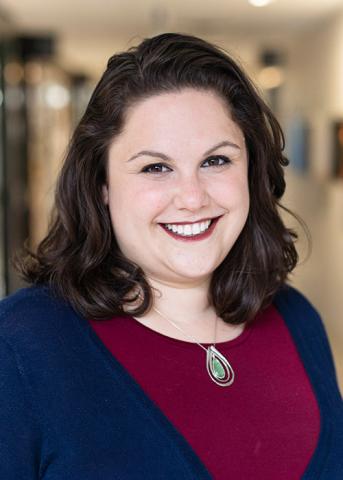What motivates you about public health?
Public health is an endless string of puzzles requiring creativity and persistence. I fell in love with public health at 16, when I traveled as a translator and environmental sampler for a lead exposure study in a small mining town in the Peruvian Andes. Despite various obstacles, the national dialogue on environmental justice and public health was changed by this work. My motivation is rooted in this experience and the resilience of the community with which I worked. I’m devoted to public health efforts with real-time impact on community health, resilience and empowerment.
What fascinates you most about public health?
Public health is the glue that binds together disparate fields striving to improve the world in which we live. In my own work, I see how public health can provide a lens that encourages collaboration and unity, even in the face of challenging political or social discourse.
What research are you working on?
My dissertation explores the "militarization" of law enforcement and its potential association with lethal use of force. This timely issue affects communities across the country, and I hope this research encourages more collaboration between public health and law enforcement agencies – moving us towards healthier and safer communities.
What inspired your interest in applied epidemiology?
Prior to the UW, I served as an Applied Epidemiology Fellow with the Council of State and Territorial Epidemiologists, in Portland, Oregon. I worked on real-time public health challenges alongside partners from across sectors. My current research interests stem from the valuable experiences I had working with fire departments, daycare and school administrators, law enforcement and other agencies on issues such as opioid overdose, Ebola, childhood vaccine exemptions and emergency preparedness.
Why did you choose the UW?
I fell in love with the Pacific Northwest! The UW allows me to stay in this glorious part of the country, and the Department of Epidemiology has given me flexibility to design my own education. I can choose electives I care about, participate in valuable independent studies, and work with faculty who help me prepare for a career in public health practice and applied epidemiology.
Tell us about your independent study on bullying and access to a loaded gun.
Being involved in bullying – as a bully, victim or both – is a known risk factor for several poor health outcomes, including subsequent victimization, perpetration of violence and substance abuse. Access to a gun is associated with many of the same health outcomes, according to the literature. We wanted to know if there were youth who report both risk factors, making them especially vulnerable.
We used data on youth, ages 12 to 18, who were interviewed on topics related to violence, crime, illegal substances, and their own perceptions of safety and social support. Our findings suggest that there is indeed a group of highly vulnerable youth who report both access to loaded guns and being bullied. These findings indicate opportunities for intervention in the home, doctor’s offices and at schools. I did the research under the mentorship of Dr. Ali Rowhani-Rahbar. We shared our findings with the Journal of Adolescent Health and via major news sites, including Newsweek and Reuters.
What experiences at the UW have been most influential?
I’m a member of my department’s Diversity, Equity and Inclusion and Curriculum committees, where I engage with peers, faculty and staff on issues relevant to our community. I’ve also served as the research assistant to the Student Epidemic Action Leaders (SEAL) Team since 2015, helping Dr. Janet Baseman to establish and run the program, develop curricula, write grants, work with students and collaborate with partners at the UW and other agencies.
What are your future goals?
I believe that the future of public health lies in interdisciplinary approaches to complex societal issues that affect community well-being. I hope to serve at the nexus of different fields, identifying new ways to integrate our methods, share data and improve public health.
Any hobbies or extracurricular activities?
I just got married, so life is slowly returning to normal. I love to take my dog, Dobby, to the dog park, explore the delicacies of Ballard, and hang out at home with a good book.
What advice would you give prospective students?
No matter what degree you are pursuing, give yourself some time to sample all the flavors of your field. Focus on building your toolkit of methods and skills. You can always narrow your focus later.

